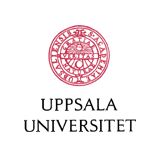|
Resource Allocation Under Uncertainty Using
the Maximum Entropy Principle.
Mathias Johanssoni,
Uppsala University and Dirac Research AB
and
Mikael Sternad
, Signals and Systems, Uppsala University.
IEEE Transactions on Information Theory,
Vol. 51, 2005, December 2005.
© IEEE
-
Abstract:
-
In this paper we formulate and solve a problem of resource
allocation over a given time horizon with uncertain demands and
uncertain capacities of the available resources.
In particular, we consider a number of data sources with uncertain
bit rates, sharing a set of parallel channels with time varying
and possibly uncertain transmission capacities. We present a
method for allocating the channels so as to maximize the expected
system throughput. The framework encompasses quality-of-service
requirements, e.g. minimum-rate constraints, as well as priorities
represented by a user-specific cost per transmitted bit.
We assume only limited statistical knowledge of the source rates
and channel capacities. Optimal solutions are found by using the
maximum entropy principle and elementary probability theory.
The suggested framework explains how to utilize multiuser
diversity in various settings, a field of recently growing
interest in communication theory. It admits scheduling over
multiple base stations and includes transmission buffers to obtain
a method for optimal resource allocation in rather general
multiuser communication systems.
-
Related publications:
-
PhD Thesis
by Mathias Johansson
-
RVK 2002 conference paper.
-
Source:
-
Pdf, (296K)
|
The Wireless IP Project Homepage
|
Main
entry in list of publications
|
This material is posted here with permission of the IEEE.
Such permission of the IEEE does not in any
way imply IEEE endorsement of any of Uppsala University's
products or services.
Internal or personal use of this material is permitted.
However, permission to reprint/republish this material for
advertising or promotional purposes or for creating new collective
works for resale or redistribution must be obtained
from the IEEE by writing to pubs-permissions@ieee.org.
By choosing to view this document, you agree to all
provisions of the copyright laws protecting it.
|

